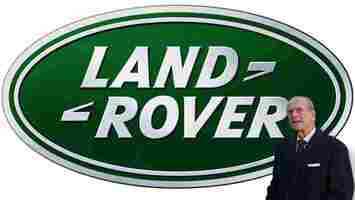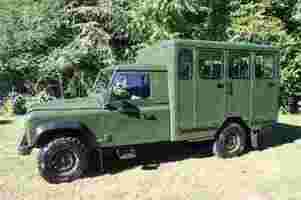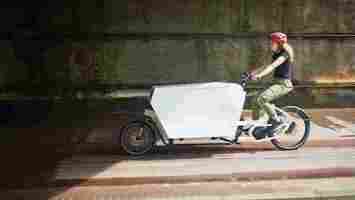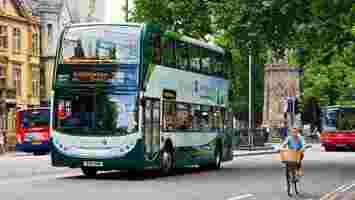Prince Philip’s final ride will be in a hybrid-electric Land Rover
Prince Philip, who died aged 99 last week, is set to have an environmentally influenced funeral, which will feature a hybrid-electric Land Rover.

According to British press , the Duke of Edinburgh will be carried to the ceremony in a modified Defender 130 Gun Bus.
What makes the vehicle even more special is that it was concepted and commissioned by Prince Philip himself back in 2005, following a 45-minute conversation with Jaguar Land Rover .


Army engineers are reportedly already working to convert the vehicle for its funeral duty.
The use of a hybrid-electric vehicle comes as part of a wider plan for the Duke’s eco-friendly funeral. Prince Philip will also be laid to rest in a woollen coffin.
According to reports , one of Prince Philip’s final wishes was that “they just stick me in the back of a Land Rover, and drive me to Windsor.”
The British Royal family have a long standing relationship with Jaguar Land Rover. The Queen has often been seen driving in a variety of Range Rovers over the years, and Prince Harry and Meghan Markle departed from their wedding in a 1968 Jaguar E-Type that had been converted to electric power.
Low emission funeral cars are nothing new.
Back in 2016, funeral transport firm Vander der Lans and Busscher BV based in the Netherlands, commissioned a Tesla Model S to be turned into a hearse in response to increasing demand for such a vehicle.
Do EVs excite your electrons? Do ebikes get your wheels spinning? Do self-driving cars get you all charged up?
Then you need the weekly SHIFT newsletter in your life. Click here to sign up .
Cargo bikes vs delivery vans: Urban Arrow on the future of logistics
This article was written by Frank Oudegeest on The Urban Mobility Daily , the content site of the Urban Mobility Company, a Paris-based company which is moving the business of mobility forward through physical and virtual events and services. Join their community of 10K+ global mobility professionals by signing up for the Urban Mobility Weekly newsletter . Read the original article here and follow them on Linkedin and Twitter .

The Business of Mobility is an Urban Mobility Company series highlighting some of the most successful new businesses in the mobility sector. Featuring a closer look at the way in which companies stand out, CEOs, Directors, and other c-level executives elaborate on what it takes to turn a great idea into a great company.
Frank Oudegeest, Director of Urban Arrow B2B, explains how Urban Arrow is turning cargo bikes into a viable alternative to the delivery van.
I began my career in the automotive business and worked there for 18 years, serving brands like BMW, Volvo, and Renault. But I became fed up with the car industry and wanted to work in a more sustainable aspect of the mobility game. I’ve always had a crush on bikes, so when the opportunity arose I left the car industry and eventually landed up at Urban Arrow. I started in the business setting up and training dealers, particularly in the Netherlands and Belgium. I was fortunate to join during a time of growth and currently we have 600 dealers in 20 countries.
The Dutch are famous for their love of cycling; there’s a spirit of freedom and egalitarianism about the bike which chimes with our national character and with our attitude at Urban Arrow. It’s a great place to work. Urban Arrow has a flat management structure and employees are motivated by their passion for cycling, for interesting design, and for the promise that new mobility will make our cities more livable and reduce carbon emissions.
Organizations that empower their employees are more likely to lead on innovation. One of Urban Arrow’s key contributions in this regard is the modular design: all our bikes have the same rear frame that can be connected to a different front frame. For example, you can start with a family bike that you put your kids in and then change the front part to a cargo version, of which there are various designs.
It’s great to have success in the family market but the real opportunity for cargo bikes to change our cities will come in our contribution to resolving last-mile deliveries.
In 2019 Dutch transport conglomerate, Pon, bought Urban Arrow to expand their bike portfolio, which includes Gazelle, Cervélo, FOCUS, Santa Cruz, and Kalkhoff. The injection of capital and expertise presented us with the opportunity to restructure. We split Urban Arrow into two distinct divisions, family and B2B. I became director of B2B, focusing on direct sales to larger companies and developing new bikes for last-mile delivery in cities.
Whereas our family customers tend to average around 30 kms a week, our business clients average 300-500 kms per week. There’s lots to go wrong when you’re carrying loads of up to 400 kgs for hundreds of kilometers each week.
Fortunately, the ebike industry has advanced to a level where the engine and battery technology is solid and consistent. Urban Arrow is well served by Bosch motors, which come with excellent warranties and international service support.
The real service and maintenance challenge is in the mechanical parts. A bike has dozens of parts: brakes, sprockets, steering rod, chain, fenders, tires, hubs, cranks etc. The next major shift in the ebike industry will come from service improvements that minimize downtime, ensure predictability, reduce overall cost to ownership, and thus win the business case for transitioning away from car ownership.
We’re working closely with Pon IT to develop our IoT capability. Smart data and IoT is changing the world and a company like ours cannot afford to be left behind. Our aim is to build a system that delivers predictive and proactive maintenance for customers.
I foresee a time when we deliver the same seamless mobility experience which the auto-industry has mastered. Indeed, thanks to our Pon association, we’re learning from the auto-industry business model, as – no doubt – they are learning from the bike industry.
The mobility revolution is partly about moving away from the ownership model toward the service model. There is the hope that many more people can get around using far fewer resources, and that these resources will be subject to a circular economy – thus minimizing waste.
Reuse and recycling of parts is certainly top-of-mind in our design, and we have a policy of refitting old bikes to extend their life and minimize waste.
But, the ebike industry still has a way to go before we can say that it’s circular. I think there is an opportunity for a large company to dedicate itself to battery recycling. When a battery dies, it’s mostly small components which break or wear. With fleets (including both cars and micromobility) becoming electrified it’s important that the new mobility industry in solving one problem – emissions – does not create another one: unsustainable battery technology.
Therefore, there could be an opportunity for a company to dedicate itself exclusively to extending the life of batteries and improving the sustainability of the battery industry. Urban Arrow would welcome such a business and work closely with them.
One thing I do know is that Urban Arrow will play its part in making our cities more livable and in reducing carbon emissions and pollutants, thus contributing to a cleaner planet.
Do EVs excite your electrons? Do ebikes get your wheels spinning? Do self-driving cars get you all charged up?
Then you need the weekly SHIFT newsletter in your life. Click here to sign up .
UK cities are getting all-electric bus fleets, starting with Oxford and Coventry
This article was originally published by Christopher Carey on Cities Today , the leading news platform on urban mobility and innovation, reaching an international audience of city leaders. For the latest updates follow Cities Today on Twitter , Facebook , LinkedIn , Instagram , and YouTube , or sign up for Cities Today News.

Oxford and Coventry are set to become the first UK cities to run their bus fleets entirely on electric energy through a Department for Transport competition to improve air quality and reduce emissions across England.
The proposals could see both cities receive a £50 million (US$68 million) injection to replace fleets and install new infrastructures, such as charging stations and electric grid updates.
Speaking on the announcement, West Midlands Mayor Andy Street said: “Turning all of Coventry’s bus fleet electric is not only a major boost to public transport in the city, but it will also help tackle the climate emergency we face both here in the West Midlands and the wider UK.”
The £50 million schemes will be supported by a further £75 million worth of investment from local bus operators into the new electric buses.
In total, 19 regions applied for the competition, with applicants required to demonstrate buy-in from stakeholders in their local areas; outline existing plans to reduce greenhouse gases and improve air quality, and show how their plans would tackle an existing air quality problem.
Oxfordshire County Council Leader, Cllr Ian Hudspeth, said: “Oxfordshire’s bid comes at a time when our council is determined to take concerted climate action to cut vehicle air pollution and expand the provision of bus services with our Zero Emission Zone and Connecting Oxford plans.
“This council is committed to offering our residents a clean and environmentally sustainable future through a series of steps including through better public transport.”
Going green
In February 2020, the UK government announced £5 billion in funding for a new ‘golden era’ of bus and active travel.
The five-year package of investment plans to boost bus services by focusing on a range of priorities, including:
Higher-frequency services, including evenings and weekends, to make it easier and less restrictive for people to get around at any time of day
More ‘turn up and go’ routes where, thanks to a higher frequency, people won’t have to rely on timetables to plan journeys
New priority schemes to make routes more efficient, so that buses avoid congested routes and can speed passengers through traffic
More affordable, simpler fares
At least 4,000 new zero-emission buses
Transport Secretary Grant Shapps said: “As we build back greener from COVID-19, we can provide people with more environmentally friendly transport and cleaner air.”
“Coventry and Oxford could soon be at the forefront of our plans for a new era of bus services, helping us develop the green transport network of the future and support jobs right here in the UK.”
SHIFT is brought to you by Polestar. It’s time to accelerate the shift to sustainable mobility. That is why Polestar combines electric driving with cutting-edge design and thrilling performance. Find out how .